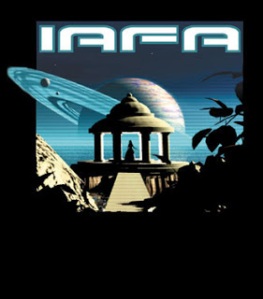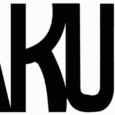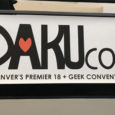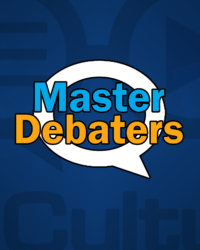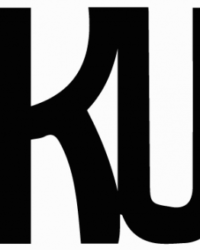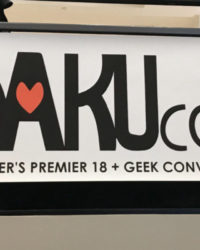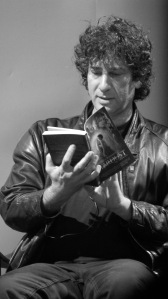 In case you haven’t noticed yet, fellow IHoGeek writer Max and I are working together on a super-awesome kick-ass paper about Doctor Who, Peter Pan, and the show’s growing popularity in America. We’ve titled our paper “Come Along Pond, Off to Neverland”, a title which starts to describe the relationship we’ve discovered between Peter and Wendy’s escape from reality, and Eleven and Amy’s similar escape. We also noticed that the parallel between the two coincided rather nicely with the explosion of Doctor Who’s popularity here in the states; even though it was definitely a cult classic in the 70s and 80s, it’s never been quite this mainstream. The project is so kick-ass that we’ve been invited to present it at this year’s International Conference for the Fantastic in the Arts, where the guest speaker will be the one and only Neil Gaiman!
In case you haven’t noticed yet, fellow IHoGeek writer Max and I are working together on a super-awesome kick-ass paper about Doctor Who, Peter Pan, and the show’s growing popularity in America. We’ve titled our paper “Come Along Pond, Off to Neverland”, a title which starts to describe the relationship we’ve discovered between Peter and Wendy’s escape from reality, and Eleven and Amy’s similar escape. We also noticed that the parallel between the two coincided rather nicely with the explosion of Doctor Who’s popularity here in the states; even though it was definitely a cult classic in the 70s and 80s, it’s never been quite this mainstream. The project is so kick-ass that we’ve been invited to present it at this year’s International Conference for the Fantastic in the Arts, where the guest speaker will be the one and only Neil Gaiman!
The conference will take place in Orlando, Florida which is not anywhere close to where either Max or I live…and we are poor recent-grads, so we started a kickstarter to support our academic goals! We have been posting like crazy everywhere–you may have seen the kickstarter on the IHoGeek twitter page and/or facebook, and a few weeks ago Max posted here on the blog about the paper topic. IHoGeek even officially supported us last week with a backer’s pledge of $10, for which we are eternally grateful.
We have officially supported @jenisaur and @maxlikescomics as they go to present their Doctor Who/Peter Pan at… fb.me/2d0UAOwIu
— IHOGeek (@IHOGeek) February 6, 2013
Today, in the last three days of our kickstarter campaign, I’m making a final push for backer support, and while I do, I’m going to encourage you all to be as awesome as we are.
I attended the conference last year, presenting on science fiction musicals, and had a blast. I made tons of professional connections and hope to do the same this year. Since our topic is a little more main-stream this year, we will be able to present in front of an even larger audience than I did last March, but I’m also REALLY looking forward to seeing other presenters’ material. You never know where inspiration lies! Here’s how to take your own ideas and share them with the academic world:
Step One: Have A Crazy Idea That Can Be Backed Up With Research
Both this year’s presentation and last’s started with mind whirrings. Last year I presented a paper I had written while working on my Masters Degree, about Science fiction and Broadway musicals. They shared a golden age, but didn’t come together successfully until the 1980s. That seemed weird to me, so I started researching and before I knew it I had a solid paper topic. This year the topic for our paper/presentation started with “have you noticed that there’s a lot of fairy tale stuff in the Smith years of Doctor Who?” At first Max and I just joked around about the links between Amy and Eleven and Wendy and Peter, but once we started thinking about it seriously, the connections made more and more sense. Then we started thinking about it even more, and once again we had our paper topic before long.
Both of these topics were where my mind went when I was bored. Both are subjects that I love deeply and care about enough to spend tons of free time researching and writing about. Having a partner this time around has been invaluble, as Max and I constantly bounce ideas off each other and more often than not end up arguing about details that one or the other would have overlooked. If you can find a co-writer, I definitely recommend it.
Step Two: Find Someone Else Who Cares
Part of the paper topic this year was formed by the fact that Max and I wanted to share our ideas with others. Last year things were easier–I had a paper to write for a class with specific qualifications in order to pass. This year, the ideas literally stemmed from wanting an excuse to spend tons of time watching and analyzing Doctor Who. I knew the conference topic this year would be on adaptations, and once I started focusing on the origins of the story, characters, and settings of the newest seasons, the topic of the paper became more clear.
I was very lucky to have awesome professors in graduate school who knew I was a gigantic nerd, and one of them happened to forward the IAFA call for papers to me last October. The ICFA’s description is as follows: “The International Conference on the Fantastic in the Arts (ICFA) is an annual scholarly conference devoted to all aspects of the fantastic (broadly defined) as it appears in literature, film, and the other arts.”
Knowing your audience is key when responding to a call for papers–you’re bound to have more luck when applying to a call that your paper answers in some specific way, or you could get buried below a pile of papers of much more relevance and interest to those reading said applications. If you don’t know where to start looking, do a quick google search for “call for paper” and some key parts of your paper topic.
Another good place to look for like-minded folks is at conventions. If you have the ability, try to pitch you paper topic as a panel at a local convention. If your idea is in it’s super-baby stages, talk about it at a round table panel on a broader topic that is related to your presentation idea; this is a great place to find connections (possibly even a co-writer) and/or research ideas you may not have thought about on your own.
Step Three: Ain’t No Rest For the Accepted
First of all, don’t give up after sending in your proposal to one conference. This is a perfect place for an “if at first you don’t succeed…” pep talk. But, if you’re smart about where you applied, (see Step Three), eventually, you’ll get that acceptance letter/email/phone call, and then your hard work really begins. Check the time requirements for your presentation; at the ICFA you get twenty minutes, but at a smaller symposium you may get 5 or ten. Check whether you can use multi-media, or if you’ve got to rely on the old index cards. Protip: don’t use index cards, and if you do, only use them for bullet points. It’s boring to watch someone read off a paper or a card. You will engaged many more audience members if you make eye contact and speak without reading. Personally, I like powerpoint presentations, especially if they have tons of pictures and/or videos included. The ICFA also requires that in order to present, you become a member of the International Association for the Fantastic in the Arts, and that you chair at least one other panel during the conference if possible. Make sure all the paperwork and other administrative things are taken care of, or you could lose your presentation spot.
Step Four: Now You Can Rest, But Only After a Whirlwind of E-mails.
Once the conference/convention/symposium is over, you may think your work is done, but it’s not really; not if you want your hard work to have a lasting effect. During the convention itself, you should introduce yourself to people, collect business cards, and hand out some yourself. When the dust has settled, send out some emails and get in touch with people you want to keep talking to. The list could include people who made presentations about which you still have questions, professional contacts such as editors or other writers, and/or folks who were simply awesome.
Also, perhaps most importantly, send an email out to whoever accepted you to the event in the first place! Thank them for including you and ask if there is a mailing list you can be included on for further calls for papers/invitations to conventions. Even if the person isn’t in control, they may be able to point you in the right direction of finding out who is, possibly insuring that you keep presenting in the future!
Good luck with your academic endeavors! If you have any questions, don’t hesitate to email me at jenisaur@ihogeek.com. I will do my best to help you out. Hope to see you at a convention real soon!
Don’t forget to back or share our kickstarter: Come Along, Pond…Off to Neverland!
And check out our project blog: Come Along Pond…Off to Neverland at Blogspot
Jen Schiller
Staff Writer
Twitter.com/Jenisaur



